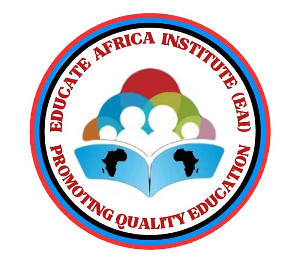The University Teachers Association of Ghana (UTAG) has embarked on an indefinite strike to protest illegal mining activities, commonly known as galamsey, and to demand a government ban on such practices.
While the Educate Africa Institute (EAI) acknowledges the importance of environmental conservation, we believe that this strike is misplaced and ultimately disruptive to students who have paid their academic and hostel fees, yet now find themselves out of the classroom.
The financial and emotional burdens on students are significant, and they deserve the uninterrupted education they have invested in.
The issue of galamsey is undeniably serious, but it lies beyond UTAG's primary mandate.
Addressing illegal mining should be the responsibility of environmental agencies, lawmakers, and law enforcement, not the educational sector.
If Ghana's primary labor unions, with their greater influence, have refrained from striking over galamsey, it raises the question of why UTAG should take this drastic measure.
Many Ghanaians recognize that addressing galamsey involves challenging deeply rooted interests, making a direct resolution unlikely.
Given this, the strike risks being an exercise in futility that affects students more than it challenges the government.
EAI urges UTAG to channel its influence toward pressing student issues such as inadequate campus accommodation and outdated curricula.
The lack of affordable and safe student housing is a growing problem, and UTAG could be a powerful advocate for campus infrastructure improvements.
Additionally, updating curricula to meet the demands of today’s job market would directly benefit students, better preparing them for post-graduate success.
Advocacy efforts focused on these areas are more aligned with UTAG's mission and can lead to immediate, tangible improvements for both educators and students.
EAI calls on UTAG to reconsider the ongoing strike and refocus on impactful actions within the educational sector.
While galamsey is indeed a critical issue, the disruption of students' education is not the way to address it.
UTAG has the potential to drive meaningful change for students and faculty by prioritizing advocacy on issues that directly impact Ghana's educational system.
Together, we can work toward a stronger, more resilient future for Ghanaian education.
We're one people. Ghana first.
Click to view details



Opinions of Friday, 18 October 2024
Columnist: Educate Africa Institute



















